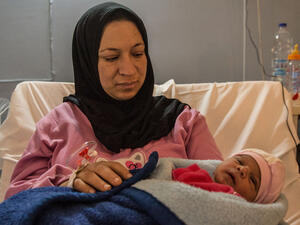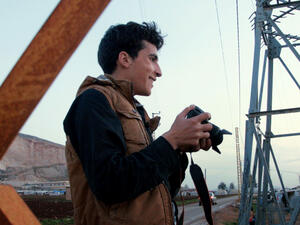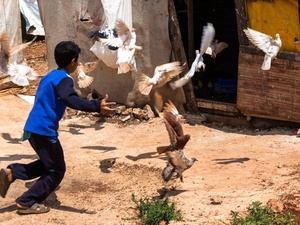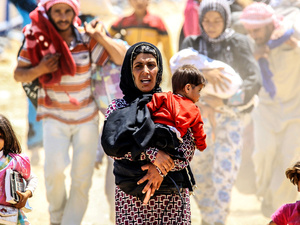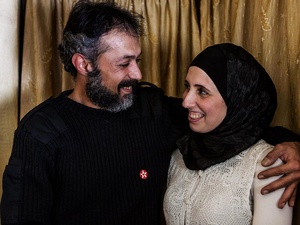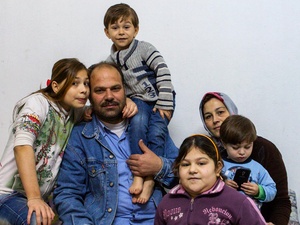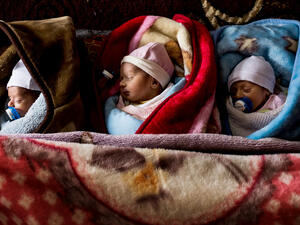Lebanon: returnee situation
Lebanon: returnee situation
UNHCR teams are still doing field assessments of the returnee situation in Lebanon but some facts are already clear. While the vast majority of people displaced by the fighting have returned, there are thousands who have not. Some of those are still in Syria - despite the recorded return of more than 146,000 Lebanese from Syria and unknown additional thousands over unofficial routes. We are checking into these remaining cases, which may be vulnerable families. The Lebanese government estimates 90 percent of the displaced inside the country - mainly in an arc around Beirut - have returned home. But that still leaves some thousands in parts of Lebanon who have not returned, who our teams are monitoring. In addition, there are many who have returned only to find their homes are uninhabitable or living conditions impossible. They could remain displaced, in other towns and villages, until there is progress in rebuilding.
A UNHCR team that went through nine villages along the border on Monday saw this reality. Four of the villages were largely destroyed, with buildings razed and rubble strewn over the ground. The team saw only a very few people, struggling to clear the debris. UNHCR will dispatch relief items to this area and will also send an engineer to help plan the rebuilding of the villages. But even in the villages that were not so badly hit, the needs are great. In the Shia town of Kfar Kela, most of the 13,000 residents are now back - up from only 150 families during the fighting. The destruction was less than elsewhere and the homeless have been taken in by other residents. But there is no electricity, limited water, a severe lack of medicine and major security concerns. In the nearby Christian town of Deir Mimash, only 200 out of 3,600 original residents have returned. They have no electricity and are short of food and water. Their surrounding fields of olive trees, tobacco and cactus plants are littered with bomblets from cluster bombs, blocking people from their only source of income. UNHCR teams are finding unexploded ordnance a major problem even north of the Litani river. Farmers cannot return to their fields before unexploded munitions are removed, which experts say could take three months just for an emergency clearance and an additional six months for a comprehensive programme.
In preparation for the extensive assistance that will be needed in the coming months, UNHCR is pre-positioning supplies in the southern cities of Tyre and Sidon, moving them down from Beirut. UNHCR supplies continue to arrive in Beirut by air, sea and road. Two flights each by the German air force and the Belgian air force are scheduled to bring UNHCR assistance from Amman today. UNHCR in Syria is dispatching nearly 150 tonnes of supplies to Beirut this week, including 40,000 blankets. While the full needs in the south are still being assessed, UNHCR field teams will distribute assistance for the emergency situations they have discovered as quickly as possible. In response to requests for rebuilding assistance, UNHCR is preparing emergency repair tool kits that include plastic sheeting, plywood, corrugated metal sheets, wood, as well as basic tools such as hammers, nails, a shovel, etc. The longer-term plans on rebuilding will follow.


